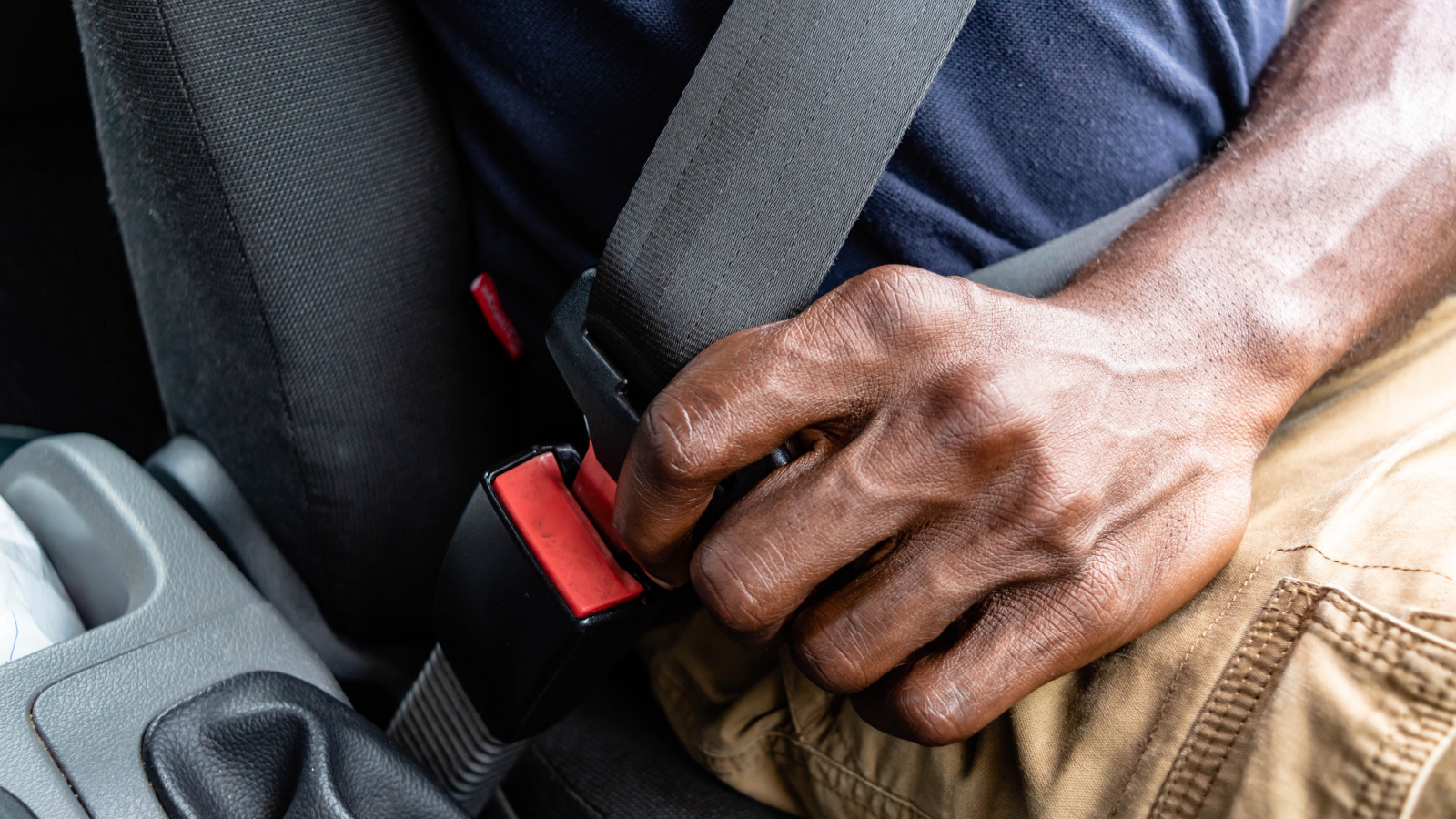Free Consultation
(314) 500-HURT100+ years of combined experience and over $200 million won for our clients in Missouri and Illinois. Contact a personal injury lawyer near you.
Free Consultation
(314) 500-HURT
What Are Missouri’s Seat Belt Laws? Seat belt laws are intended to keep ourselves and others on the road safe. According to the National Highway Traffic Safety Administration, in 2017 seat belts saved an estimated 14,955 lives nationwide. At Burger Law, our car accident lawyers are experts in all things related to car safety and car accident laws. If you were injured by a negligent driver anywhere in Missouri or Illinois, discuss your case with an attorney for free at or contact us online. Otherwise, read on below to learn more about the seat belt laws in Illinois.
According to the 2020 Illinois Crash Facts and Statistics, there were 652 traffic deaths in the state where we know if the occupant was wearing a seatbelt or not. Of those, 327, or just over 50 percent, were not wearing a seatbelt. Seat belt-less drivers and passenger account for 17 percent of all “A-injuries,” and 6 percent of all injuries.
The state’s seat belt laws can be found in 625 ILCS 5/12-603.1. Generally:
According to the Illinois Rules of the Road, the seat belt should be worn across the hip bones, and should never run across the stomach. The shoulder strap should always be in front of a driver or passenger, away from the neck, and as snug as possible while still allowing the driver to reach for certain controls.
Illinois Law does allow for some exceptions to those rules:
Violating Illinois’ seat belt laws is a primary offense, meaning a police officer is allowed to pull you over if they see or suspect you’re not wearing your seatbelt. They may not, however, use a seat belt violation as a reason to search your car, you or your passengers.
Violating Illinois seat belt laws is a petty offense. A conviction carries a maximum $25 fine and court costs.
Yes. Some states allow a “seat belt defense,” which lets the defendant assert that your injuries were partially your fault, which reduces your compensation. However, Illinois is not one of those states, so whether or not you were wearing a seat belt has no effect on your claim.
If you or a loved one were hurt by a negligent driver, you deserve full compensation. Burger Law’s elite personal injury law firm can ensure you get it. Call us today at or fill out our online form for a free consultation.
Founder | Injury Attorney
Gary Burger has dedicated his career to standing up against bullies. The founder and principal attorney of Burger Law | St. Louis Personal Injury Lawyer has helped hundreds of Missouri and Illinois individuals and families recover th …
Years of experience: 30 years
Location: St. Louis, MO

Similar FAQs

Winter weather can be awesome, and in many cases, it can be downright terrible. No one enjoys driving on snow-covered or ice covered roads. It's dangerous, and it's the easiest wa...

What is the average settlement for a car accident? Data indicates that the average car accident settlement falls between $20,000 and $30,000, though actual amounts can vary widely ...

When is it too late to get a lawyer for a car accident in St. Louis? Many of our clients tell us they never imagined they'd need to hire a car accident lawyer. When a lot of our cl...
NO FEES UNTIL WE WIN YOUR CASE
We offer free consultations and are available 24/7 to take your call. Live chat, text, and virtual meetings are available.
or call us at